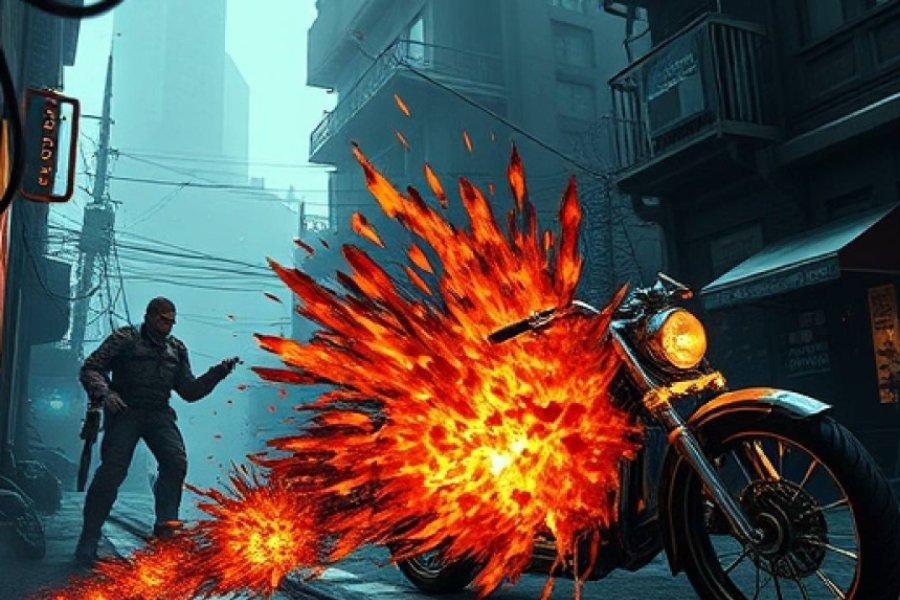As gaming technology continues to evolve, hardware performance becomes crucial in delivering a seamless and immersive gaming experience. The NVIDIA GeForce capcom game crash 2080ti is a high-end GPU renowned for its graphical prowess, designed to handle the most demanding gaming environments. Despite its power, some users have reported instability issues while playing certain Capcom titles on this GPU. This guide explores the potential causes behind these crashes and offers effective troubleshooting solutions to enhance the gaming experience.
Overview of the NVIDIA GeForce capcom game crash 2080ti
The NVIDIA GeForce capcom game crash 2080ti, part of the Turing architecture, is equipped with advanced features like 11GB of GDDR6 memory and real-time ray tracing, making it one of the most capable GPUs for gaming. Its high base and boost clock speeds, alongside a broad memory interface, enable it to handle graphically intense games with high frame rates and enhanced visual fidelity.
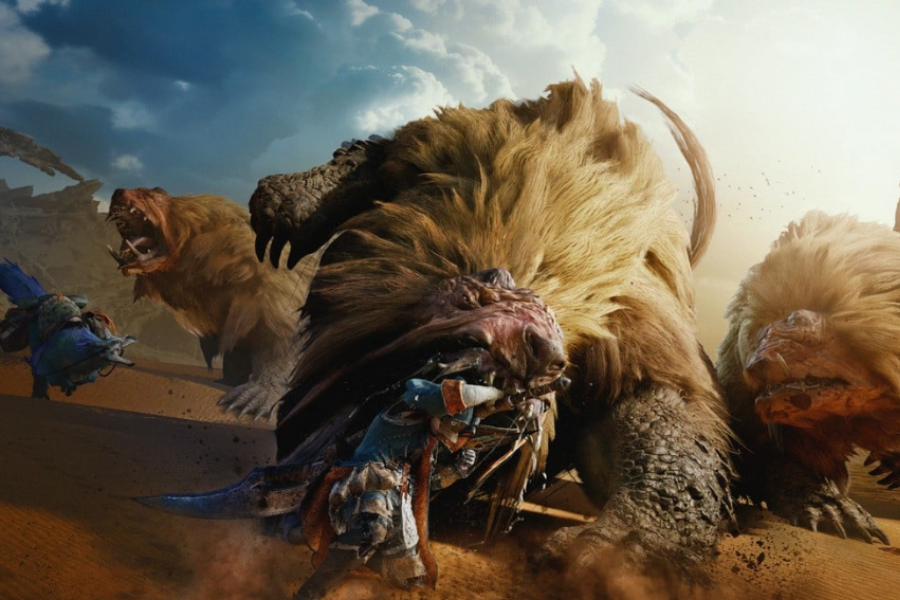
Key Specifications
- CUDA Cores: 4,352
- Base Clock: 1,350 MHz
- Boost Clock: 1,545 MHz
- Memory Interface: 352-bit
- Memory Speed: 14 Gbps
- Maximum Supported Resolution: 7680×4320 (8K)
Despite its impressive capabilities, players may experience crashes when running graphically demanding games, especially when settings are pushed to their limits.
Capcom Games Affected by Crashes on the capcom game crash 2080ti
Capcom is known for creating some of the most beloved and technically impressive franchises in the gaming industry. However, despite their critical acclaim, some players using the high-performance NVIDIA GeForce capcom game crash 2080ti GPU have reported experiencing crashes, glitches, and other performance issues while playing these titles. Below, we explore some of the most affected Capcom games, detailing the specific challenges players face when running them on the 2080Ti.
1. Resident Evil Village
A Chilling Horror Experience That Pushes the Limits
Resident Evil Village is a flagship entry in the iconic Resident Evil series, known for its blend of atmospheric horror and high-definition graphics. The game uses the RE Engine, which leverages advanced visual techniques like photorealistic lighting, textures, and real-time ray tracing. While the capcom game crash 2080ti is equipped to handle these demanding visual elements, players have reported crashes during gameplay, particularly during intense graphical moments or when running the game with settings maxed out.
Common Issues
- Crashes during loading screens: Many players have experienced crashes when loading into new areas or transitioning between scenes.
- Freezing during intense sequences: Particularly in high-stress combat moments or while exploring detailed environments, the game may freeze, forcing players to restart.
Potential Causes
- The heavy graphical demands of ray tracing and ultra settings can sometimes overwhelm even high-end GPUs like the 2080Ti, especially if the system’s other components are not optimized.
2. Monster Hunter World
Epic Hunts with Stunning Visuals and Immense Detail
Monster Hunter World offers a sprawling open world filled with colossal monsters, intricate ecosystems, and detailed environments. The game is graphically demanding, especially when played in co-op multiplayer mode, where multiple players and large-scale monsters can place significant strain on hardware. Despite the capcom game crash 2080ti’s power, players have experienced crashes, particularly when pushing the settings to ultra and enabling all available graphical features.
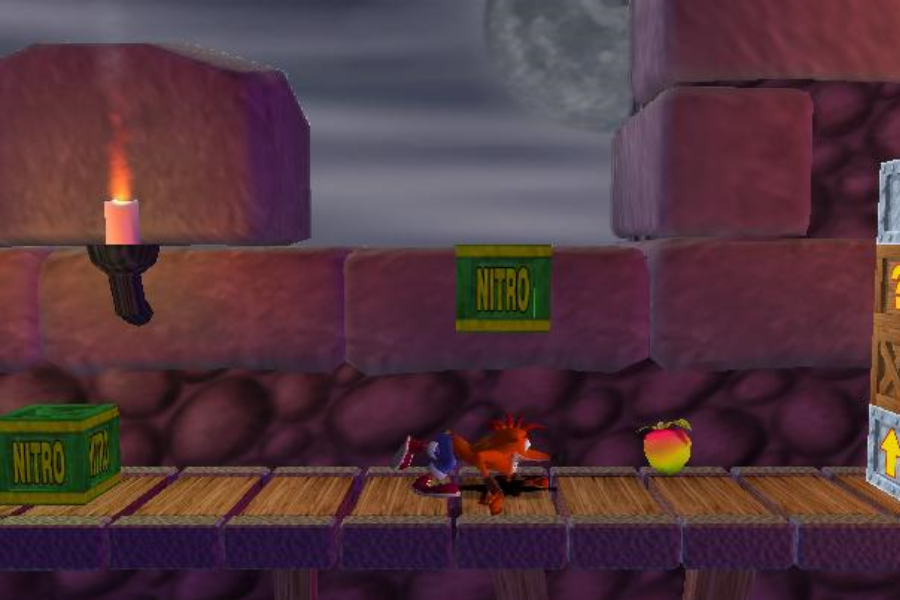
Common Issues
- Crashes during multiplayer sessions: The game can experience instability when multiple players are involved in a hunt, particularly with the enhanced textures and detailed monster models.
- Loading screen freezes: Similar to Resident Evil Village, loading screens may freeze or cause crashes when the game attempts to load complex environments or new areas.
Potential Causes
- The combination of high-resolution textures, dense environments, and large-scale monster models can cause memory or processing bottlenecks, leading to instability. Additionally, online multiplayer connections can sometimes introduce latency or server-related issues, contributing to crashes.
3. Devil May Cry 5
Fast-Paced Combat and Breathtaking Visuals
As one of Capcom’s premier action games, Devil May Cry 5 combines fast-paced combat with a story-driven narrative, offering some of the most visually stunning sequences in gaming. The game’s high-speed combat, detailed character models, and cinematic cutscenes make it an exhilarating experience, but the demanding nature of these graphics can sometimes cause issues with powerful GPUs like the 2080Ti, especially when playing at 4K or using ray-tracing features.
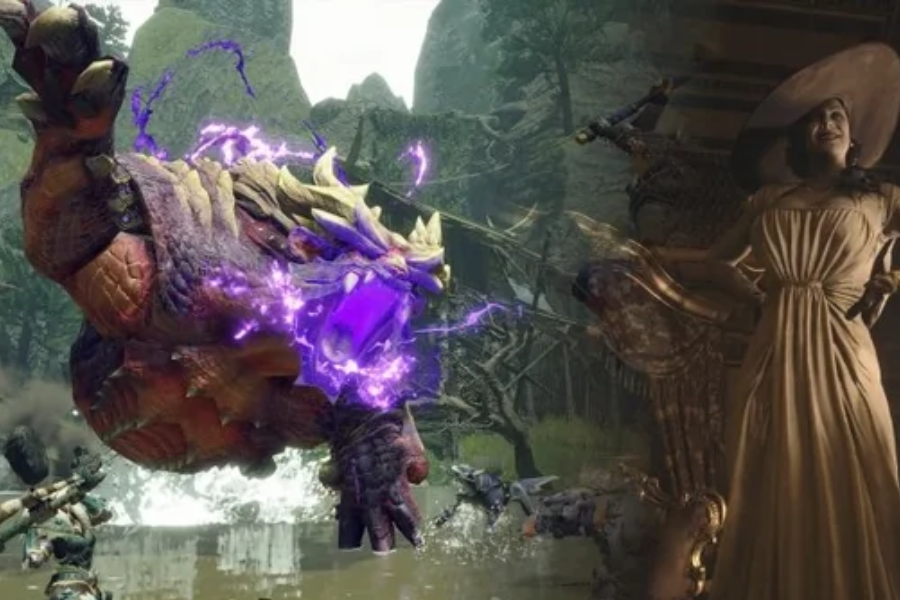
Common Issue
- Random crashes during combat sequences: Some players report sudden crashes during intense action moments, where the game is rendering complex animations and special effects.
- Performance drops: At higher settings, players may experience a significant drop in frame rate or crashes when pushing the game’s settings to the maximum.
Potential Causes
- The sheer number of real-time effects during fast combat sequences, combined with high graphical demands, can lead to instability in hardware if settings are too high for the system to handle smoothly
4. Street Fighter V
Competitive Fighting with High-Speed Graphics
As one of Capcom’s iconic fighting games, Street Fighter V is known for its fast-paced gameplay and crisp visuals. While it’s not as graphically demanding as Resident Evil Village or Monster Hunter World, players have still reported crashes and frame rate issues when playing on higher settings or using the capcom game crash 2080ti.
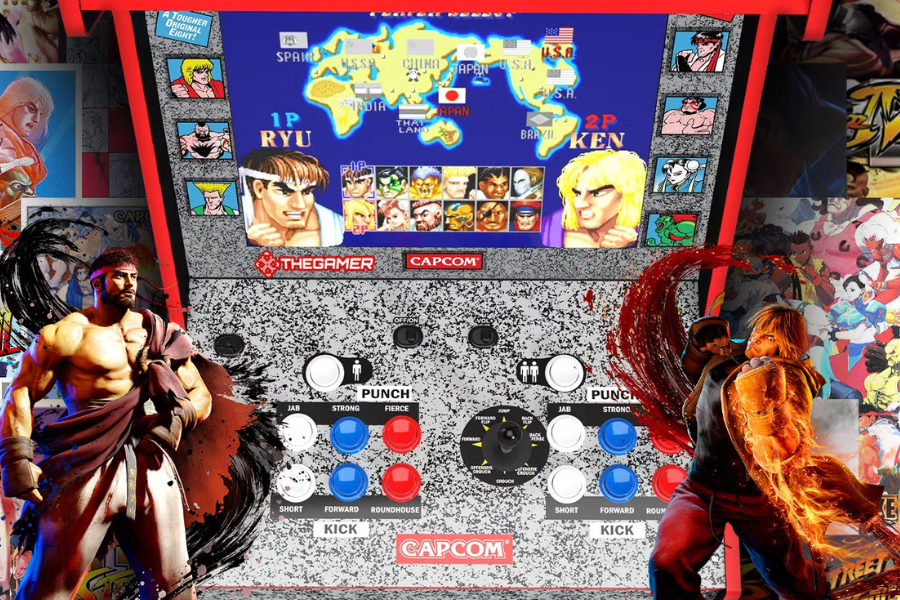
Common Issues
- Frame rate drops during intense matches: In high-action scenarios, the game can suffer from significant frame rate drops, particularly in the heat of battle.
- Game crashes during online matches: Some players have experienced crashes when connecting to online matches or transitioning between different modes.
Potential Causes
Online gameplay may contribute to server instability or poor connection issues, which can trigger crashes. Additionally, rendering high-quality character models and effects at fast frame rates can stress the GPU, particularly when paired with ultra settings.
5. Resident Evil 2 Remake
A Classic Reborn with Modern Graphics
The Resident Evil 2 Remake is a ground-up reimagining of the classic survival horror title, built with the same RE Engine as Resident Evil Village. It features modernized graphics, enhanced lighting, and meticulous attention to detail, which makes it visually stunning but also quite demanding on the system. While many players enjoy smooth performance with the capcom game crash 2080ti, others have encountered crashes, especially when running the game at higher resolutions or ultra settings.
Common Issues
- Frequent crashes during key events: Some players report crashes when major story events or cutscenes trigger complex animations and visual effects.
- Audio desynchronization or freezing: Audio issues are often accompanied by visual freezes, especially when transitioning between areas.
Potential Causes
- The high-quality textures and complex lighting systems in Resident Evil 2 Remake can place strain on the GPU, particularly at high resolutions. Additionally, the game’s heavy reliance on audio and visual effects can cause instability if the system is not properly optimized.
Capcom Games Prone to Crashing
- Resident Evil Village: Known for its eerie atmosphere and high-definition visuals, this survival horror title is taxing on the GPU.
- Monster Hunter World: This action RPG demands high processing power for smooth performance during epic hunts.
- Devil May Cry 5: A fast-paced action game that requires substantial GPU resources to maintain fluid combat sequences and stunning visual effects.
Many users have reported crashes, including unexpected freezes or crashes during loading, which can disrupt gameplay.
Common Causes of Crashes on 2080Ti
There are several reasons why Capcom games may crash while using the capcom game crash 2080ti. Let’s look at some potential causes:
1. Outdated or Corrupt Drivers
Often, issues with gaming stability stem from drivers that are not up-to-date or have become corrupted. Graphics card manufacturers like NVIDIA frequently release updates to fix bugs, improve performance, and ensure compatibility with new titles. Without regular updates, compatibility issues can arise, especially with newer, more complex games.
2. Graphics Settings Misconfiguration
Capcom games feature extensive graphical options that, when set too high, can overwhelm even powerful systems. For example, enabling ultra settings or ray tracing can put an unnecessary strain on your GPU, leading to crashes or instability.
3. System Performance Bottlenecks
The GPU is only one piece of the puzzle. Other system components like the CPU, RAM, and storage also play critical roles in gaming stability. A bottleneck in any of these areas can disrupt the overall performance, leading to system crashes.
4. Thermal Issues
Intensive gaming sessions can generate significant heat, causing the GPU to throttle or fail. If your PC’s cooling system is inadequate—whether due to dust buildup or a lack of airflow—the GPU may overheat, resulting in crashes or reduced performance.
Effective Troubleshooting for Capcom Game Crashes on the 2080Ti
If you encounter crashes while gaming, here’s a step-by-step guide to resolving these issues:
Step 1: Update Your Drivers
Ensuring your graphics drivers are up-to-date is the first line of defense against crashes. Follow these steps to update your NVIDIA drivers:
- Visit NVIDIA’s official driver download page.
- Select the appropriate model (capcom game crash 2080ti) and operating system.
- Download and install the latest driver.
- Restart your system to apply the changes.
Step 2: Adjust Graphics Settings
Lowering certain graphics settings can alleviate stress on your GPU. Try adjusting these:
- Texture Quality: Reducing this setting can help manage memory consumption.
- Ray Tracing: If enabled, consider turning this off to reduce the load on the GPU.
- Resolution: Lowering the resolution can ease the GPU’s workload, preventing crashes.
Step 3: Verify System Requirements
Make sure that the rest of your system meets the game’s requirements. Tools like CPU-Z and HWMonitor can help assess whether your CPU and RAM are up to par with the game’s demands.
Step 4: Monitor Temperature
Use software such as MSI Afterburner or HWMonitor to monitor your GPU’s temperature. If your GPU exceeds safe operating temperatures (around 85°C), overheating could be the cause of instability. To combat this:
- Ensure proper airflow in your PC case.
- Clean any dust from cooling components.
- Upgrade your fans if needed to enhance cooling efficiency.
Step 5: Run System Diagnostics
Running diagnostics can uncover hidden issues:
- Windows Memory Diagnostic: Check for RAM problems.
- Disk Check Utility: Look for hard drive errors that might affect game performance.
Community Insights and Official Responses
The gaming community is often quick to identify common issues and share potential solutions. If crashes persist, checking forums such as Reddit, GameFAQs, or dedicated gaming communities can provide insights into possible fixes.
Capcom’s Official Response
Capcom has acknowledged the issues and released patches to address game crashes and enhance performance on high-end GPUs like the 2080Ti. For example:
- Resident Evil Village received updates aimed at stabilizing gameplay on powerful systems.
- Monster Hunter World received an optimization patch to improve performance, especially on newer GPUs.
Future of Capcom Games on Advanced Hardware
As game development advances, Capcom is expected to refine its optimization strategies, ensuring that upcoming titles perform smoothly on high-end hardware like the capcom game crash 2080ti and beyond. Expect:
- More Optimized Games: Future titles will likely be better optimized for powerful systems, reducing crashes and enhancing stability.
- Increased Focus on Graphics: Future Capcom games will push the boundaries of graphical fidelity, utilizing advanced technologies such as ray tracing and AI-driven effects.
FAQS
Q: What causes Capcom games to crash on the capcom game crash 2080ti?
A: Crashes in Capcom games on the capcom game crash 2080ti can be caused by several factors, including outdated drivers, incompatible graphics settings, hardware limitations, or overheating. Pushing the settings to ultra, particularly with demanding features like ray tracing, can overwhelm the GPU, especially if the system is not fully optimized.
Q: How can I prevent Capcom games from crashing on my capcom game crash 2080ti?
A: To minimize crashes, ensure your graphics drivers are up to date, adjust in-game settings to reduce graphical strain (such as lowering texture quality, turning off ray tracing, or reducing resolution), monitor your system’s temperature, and make sure your entire system meets the recommended game requirements.
Q: Which Capcom games are most likely to crash on the capcom game crash 2080ti?
A: Several Capcom titles have been reported to experience crashes on the capcom game crash 2080ti, including Resident Evil Village, Monster Hunter World, Devil May Cry 5, Street Fighter V, and Resident Evil 2 Remake. These games often push the limits of graphical performance, particularly at higher settings.
Q: How do I check if my graphics drivers are up to date?
A: To check if your graphics drivers are up to date, visit the NVIDIA website and search for the latest driver for your capcom game crash 2080ti model.
Q: What should I do if my game keeps crashing despite troubleshooting?
A: If troubleshooting steps do not resolve the issue, consider reaching out to Capcom’s customer support for further assistance. Additionally, visiting community forums like Reddit or official game forums can provide helpful tips or fixes from other players who may have experienced similar issues.
Q: Can community mods help fix crashes in Capcom games?
A: Yes, some community-created mods or patches may help improve stability and performance in specific Capcom games. However, it’s crucial to download these mods from reputable sources to avoid potential security risks or system instability.
Q: How can I monitor the temperature of my capcom game crash 2080ti?
A: You can use software like MSI Afterburner, HWMonitor, or other temperature-monitoring tools to keep track of your GPU’s temperature while gaming. If the temperature exceeds safe limits (usually around 85°C), it may indicate that your system’s cooling is inadequate and could be contributing to crashes.
Conclusion
Crashes while playing Capcom games on the NVIDIA GeForce capcom game crash 2080ti can disrupt an otherwise thrilling experience. However, by understanding the root causes—such as driver issues, system bottlenecks, and overheating—and applying the proper troubleshooting steps, players can significantly improve their gaming experience. Keep your system updated, adjust your settings, and monitor performance to enjoy the world-class gaming Capcom has to offer.
Stay Connected: Article Forward
